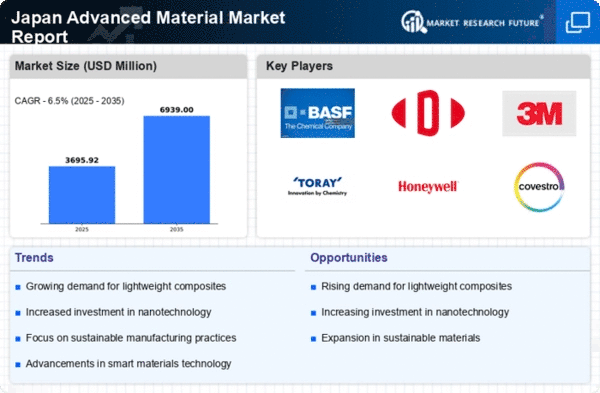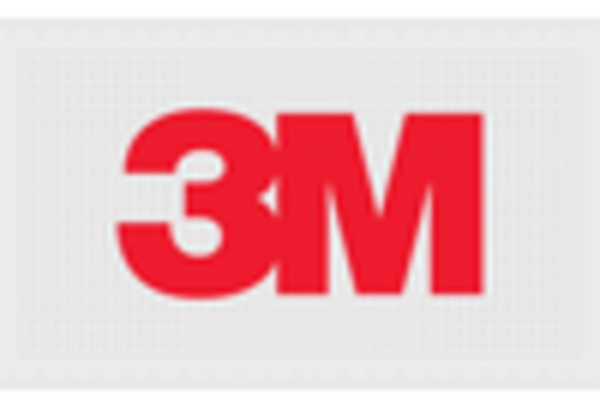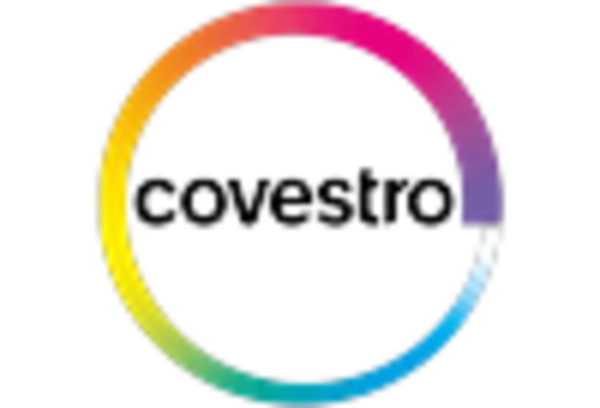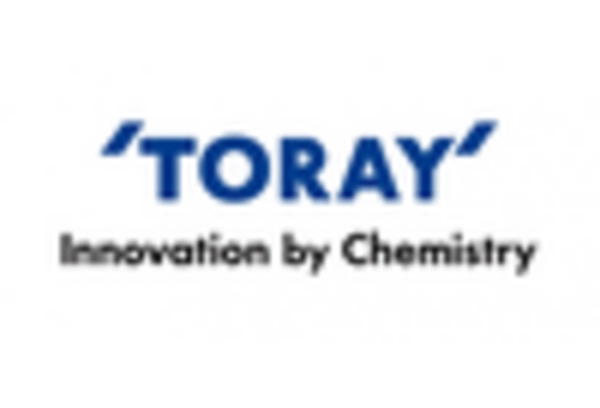The advanced material market in Japan is characterized by a dynamic competitive landscape, driven by innovation, sustainability, and technological advancements. Key players such as Toray Industries Inc (JP), BASF SE (DE), and DuPont de Nemours Inc (US) are at the forefront, each adopting distinct strategies to enhance their market positioning. Toray Industries Inc (JP) focuses on developing high-performance materials, particularly in the aerospace and automotive sectors, while BASF SE (DE) emphasizes sustainability through its circular economy initiatives. DuPont de Nemours Inc (US) is leveraging its expertise in advanced polymers to cater to the growing demand for lightweight materials in various applications. Collectively, these strategies contribute to a competitive environment that prioritizes innovation and sustainability.In terms of business tactics, companies are increasingly localizing manufacturing to reduce lead times and enhance supply chain efficiency. This approach is particularly evident in the moderately fragmented market structure, where collaboration among key players is essential for maintaining competitive advantage. The influence of major companies is significant, as they not only drive technological advancements but also set industry standards that smaller firms often follow.
In October Toray Industries Inc (JP) announced a partnership with a leading aerospace manufacturer to develop next-generation composite materials. This collaboration is strategically important as it positions Toray to capitalize on the growing demand for lightweight, high-strength materials in the aerospace sector, potentially increasing its market share and reinforcing its reputation as an innovator in advanced materials.
In September BASF SE (DE) launched a new line of biodegradable polymers aimed at reducing plastic waste. This initiative aligns with global sustainability trends and reflects BASF's commitment to environmental responsibility. By introducing these materials, BASF not only addresses regulatory pressures but also appeals to environmentally conscious consumers, thereby enhancing its competitive edge in the market.
In August DuPont de Nemours Inc (US) expanded its production capacity for advanced polymers in Japan, responding to the rising demand from the automotive and electronics sectors. This strategic move is likely to strengthen DuPont's position in the market, allowing it to meet customer needs more effectively while also optimizing its supply chain operations.
As of November current competitive trends in the advanced material market include a strong emphasis on digitalization, sustainability, and the integration of artificial intelligence in production processes. Strategic alliances are increasingly shaping the landscape, enabling companies to pool resources and expertise to drive innovation. Looking ahead, competitive differentiation is expected to evolve, with a shift from price-based competition towards a focus on technological advancements, innovation, and supply chain reliability. This transition underscores the importance of agility and responsiveness in a rapidly changing market.

















